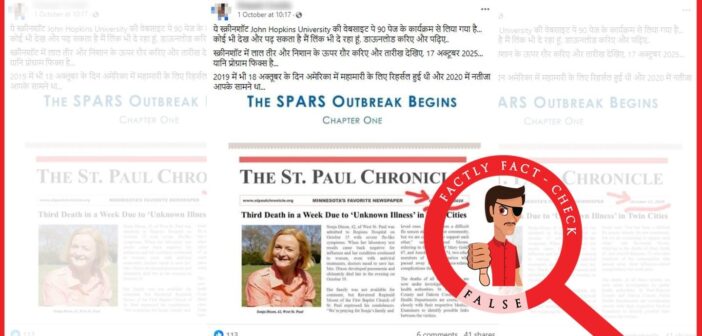By posting a screenshot from a newspaper dated 17 October 2025, which discusses an outbreak of an unfamiliar illness, a social media post asserts that Johns Hopkins University has foreseen a pandemic occurring in 2025. The post invokes concern about the potential for a pandemic in 2025, drawing parallels to a similar rehearsal for a pandemic in 2019. Through this article, let’s fact-check the claim made in the post.
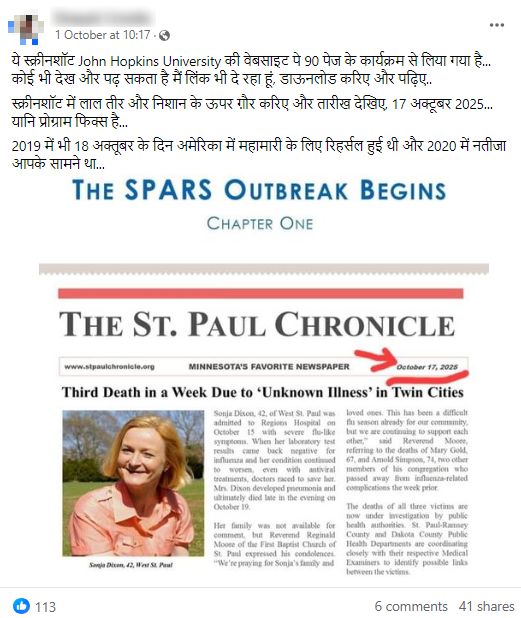
Claim: Johns Hopkins University has foreseen a pandemic occurring in 2025.
Fact: The John Hopkins Center for Health Security published this report in 2017, intending it for self-guided exercises to examine potential challenges that could arise in a pandemic. However, this report has been misinterpreted as forecasting a potential outbreak in 2025. Comparable pandemic readiness scenarios were also developed in the past. Hence, the claim made in the post is FALSE.
The viral screenshot originates from a publication by the John Hopkins Center for Health Security, titled ‘The SPARS PANDEMIC 2025-2028.‘ However, this publication does not predict a pandemic in 2025. Instead, it serves as a written report designed for self-guided exercises to explore potential challenges that might emerge during a pandemic.
The report outlines a hypothetical scenario featuring the emergence of a new coronavirus from 2025 to 2028. It delves into imaginative challenges, including problems with communication, and endeavors to discover an effective treatment for the disease.
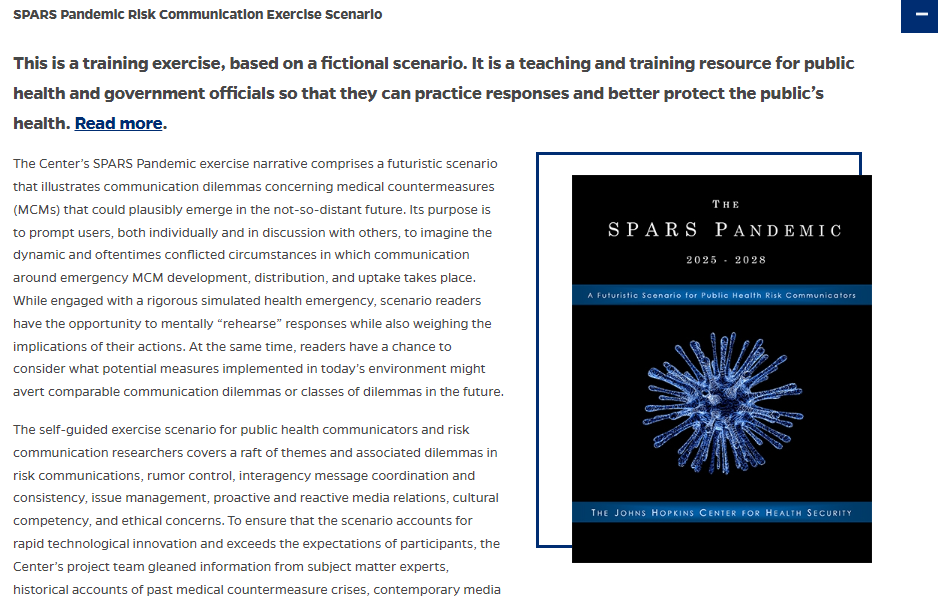
These kinds of scenarios are frequently employed in diverse fields, ranging from geology to firefighting, to ensure the utmost preparedness for adverse situations. It’s crucial to emphasize that the Johns Hopkins Center for Health Security published this report in 2017, and the document includes a disclaimer specifying that ‘this is a hypothetical scenario designed to illustrate the public health risk communication challenges that could potentially emerge during a naturally occurring infectious disease outbreak requiring development and distribution of novel and/or investigational drugs, vaccines, therapeutics, or other medical countermeasures.’
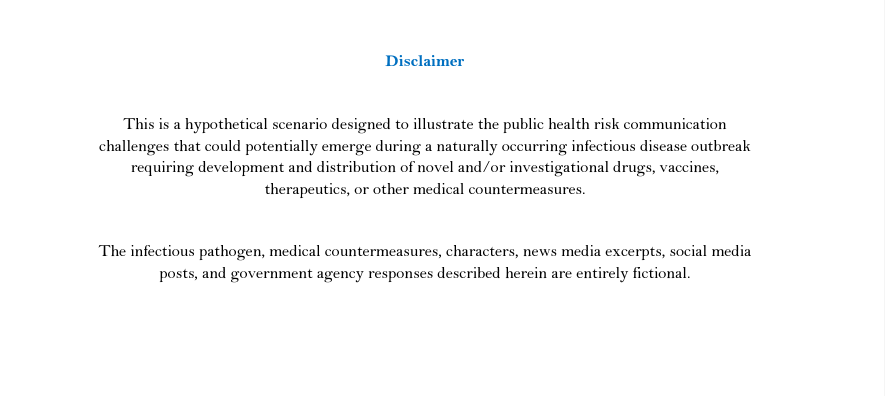
Moreover, as asserted in the circulating post, it is accurate that the Johns Hopkins Center for Health Security, alongside the World Economic Forum and the Bill & Melinda Gates Foundation, conducted a simulation exercise in 2019, preceding the onset of the COVID-19 pandemic. Nevertheless, these simulated scenarios and conferences do not serve as evidence that the COVID-19 pandemic was premeditated. Hence, it’s clear that the hypothetical report released by Johns Hopkins has been misinterpreted as a prediction of a pandemic.
Pandemic preparedness is not new :
Numerous organizations and nations have developed strategies for pandemic preparedness to minimize the consequences of such outbreaks. The 2003 severe acute respiratory syndrome (SARS) pandemic and mounting concerns regarding the potential dangers of avian influenza prompted numerous countries to formulate pandemic preparedness plans (here & here).
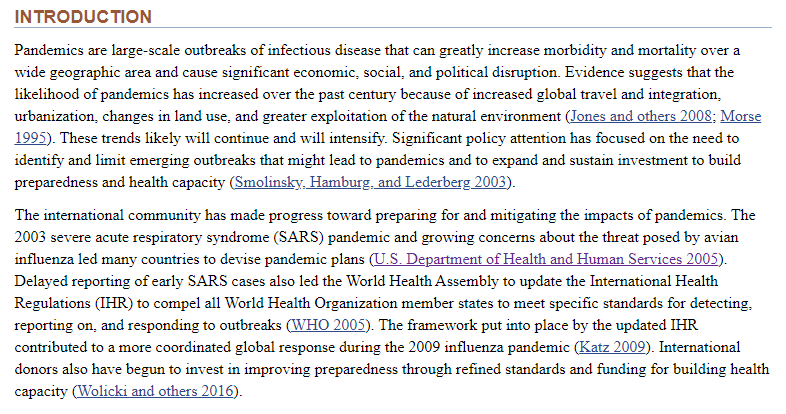
To sum it up, Johns Hopkins Center’s report on pandemic preparedness is misconstrued as a potential outbreak is expected in 2025.


